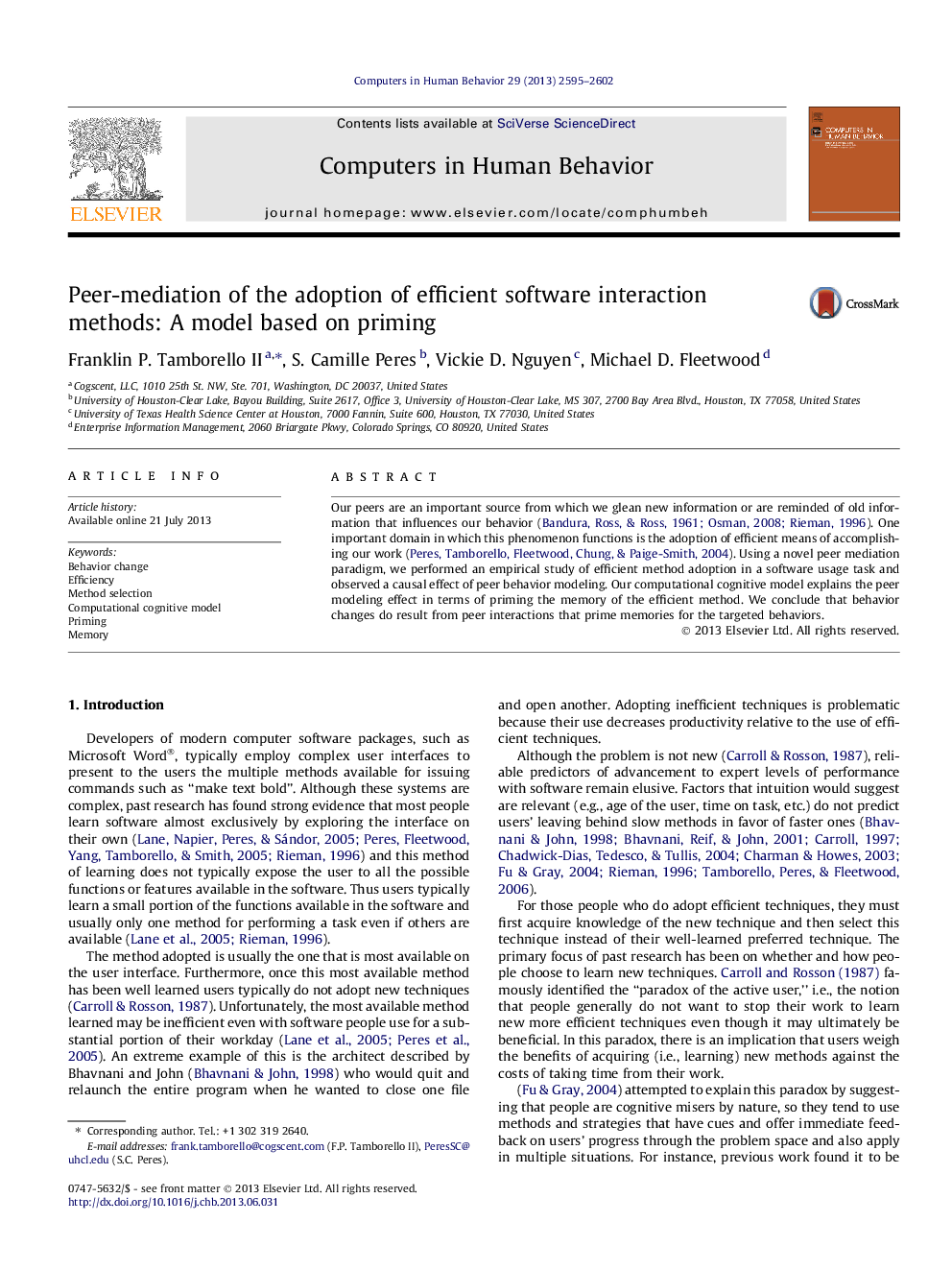| Article ID | Journal | Published Year | Pages | File Type |
|---|---|---|---|---|
| 350885 | Computers in Human Behavior | 2013 | 8 Pages |
•Novel empirical paradigm elicits social learning effect for an economically-important behavior.•Observation of peers leads to user behavior change.•Computational theory of priming explains social learning effect.
Our peers are an important source from which we glean new information or are reminded of old information that influences our behavior (Bandura et al., 1961, Osman, 2008 and Rieman, 1996). One important domain in which this phenomenon functions is the adoption of efficient means of accomplishing our work (Peres, Tamborello, Fleetwood, Chung, & Paige-Smith, 2004). Using a novel peer mediation paradigm, we performed an empirical study of efficient method adoption in a software usage task and observed a causal effect of peer behavior modeling. Our computational cognitive model explains the peer modeling effect in terms of priming the memory of the efficient method. We conclude that behavior changes do result from peer interactions that prime memories for the targeted behaviors.
